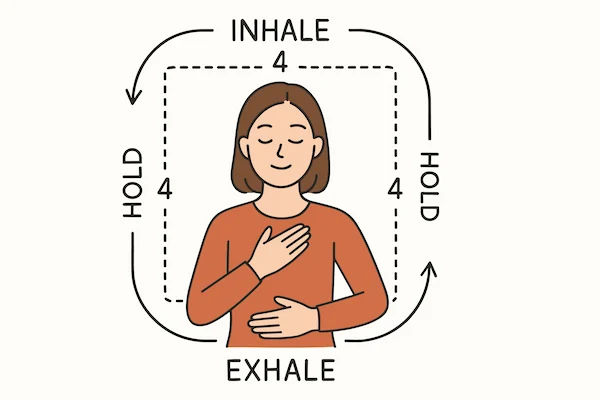Understanding Night Sweats: Causes and Solutions
know what night sweats are, common causes, how to manage them, and what the management tips are.

Written by Dr. Shaik Abdul Kalam
Reviewed by Dr. Rohinipriyanka Pondugula MBBS
Last updated on 11th Aug, 2025

Introduction
Do you often wake up drenched in sweat at night, even when your room is cool? If so, you may be experiencing night sweats—a common but often misunderstood condition. While occasional sweating at night is normal, frequent episodes could signal an underlying health issue.
In this article, we’ll explore what night sweats are, their possible causes, and practical solutions to help you sleep better.
What Are Night Sweats?
Night sweats refer to excessive sweating during sleep, enough to soak your clothes or bedding. Unlike mild sweating due to a warm room or heavy blankets, night sweats occur without an obvious external cause. They can disrupt sleep, leaving you tired and irritable the next day.
Health topic carousel:
Doctor's speciality: general practitioner
Text: Consult a top general practitioner for the best advice
Common Causes of Night Sweats
Night sweats can result from various factors, ranging from harmless to serious. Here are some possible causes:
1. Hormonal Imbalances
Menopause: Hot flashes and night sweats are common in women going through menopause due to hormonal changes.
Hyperthyroidism: An overactive thyroid gland can increase metabolism, leading to excessive sweating.
2. Infections
Tuberculosis (TB): Night sweats are a classic symptom of TB.
HIV & Other Infections: Some viral or bacterial infections can trigger sweating.
3. Medications
Antidepressants, diabetes drugs, and steroids may cause night sweats as a side effect.
4. Low Blood Sugar (Hypoglycemia)
Diabetics on insulin or certain medications may experience night sweats due to low blood sugar levels.
5. Anxiety & Stress
Stress activates the body’s "fight or flight" response, leading to sweating.
6. Sleep Disorders
Conditions like sleep apnea can cause excessive sweating due to disrupted breathing.
7. Serious Conditions (Less Common)
cancer (e.g., lymphoma)
Neurological disorders
When Should You See a Doctor?
Occasional night sweats may not be a concern, but consult a doctor if you experience:
- Frequent episodes
- Unexplained weight loss
- Fever or chills
- Persistent fatigue
Early diagnosis can help rule out serious conditions.
How to Manage Night Sweats
1. Adjust Your Sleep Environment
Keep your bedroom cool (around 65°F or 18°C).
Use breathable, moisture-wicking bedding.
Wear lightweight, cotton pyjamas.
2. Dietary Changes
Avoid spicy foods, caffeine, and alcohol before bed.
Stay hydrated but limit fluids close to bedtime.
3. Stress Management
Practice deep breathing, meditation, or yoga before bed.
Maintain a regular sleep schedule.
4. Medical Treatments
If menopause is the cause, hormone therapy may help.
For infections or thyroid issues, proper treatment can reduce sweating.
5. Track Your Symptoms
Keep a sleep diary to identify triggers and share them with your doctor.
When to Seek Professional Help
If lifestyle changes don’t help, or if you have additional symptoms like fever, weight loss, or fatigue, it’s best to consult a doctor.
Final Thoughts
Night sweats can be uncomfortable, but understanding the cause is the first step toward relief. Simple lifestyle adjustments can make a big difference, but if symptoms persist, don’t hesitate to seek medical advice.
Health topic carousel:
Doctor's speciality: general practitioner
Text: Consult a top general practitioner for the best advic




